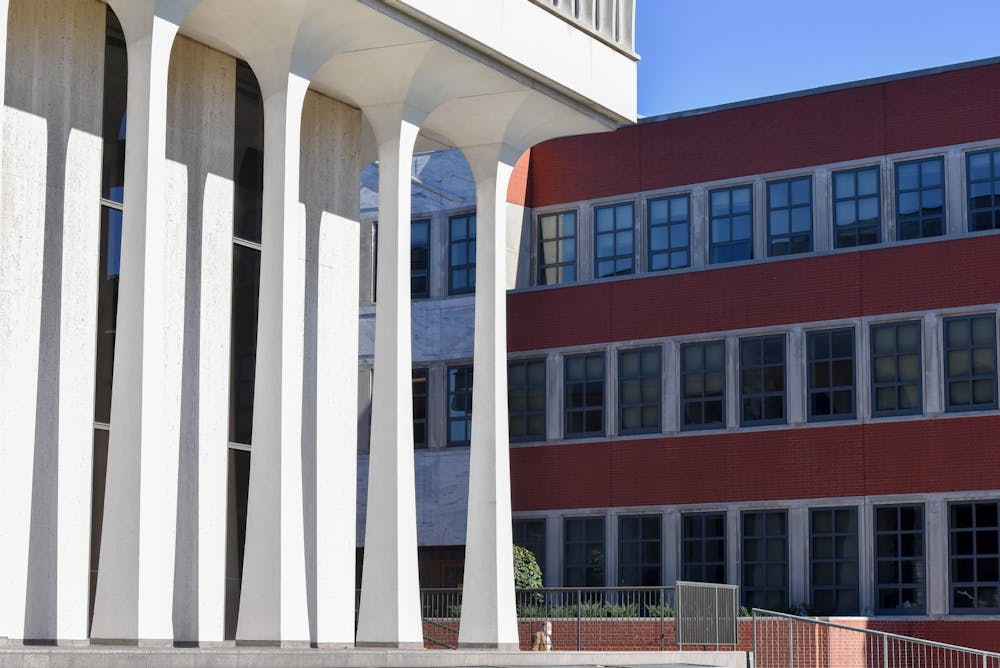Despite the fervor with which Princeton’s administration brandishes the University motto — in the nation's service and the service of humanity — the institution’s, and its alumni’s, neglect of developing civic service and engagement opportunities indicates a lack of commitment to upholding their mantra.
According to the 2023 Senior Survey, nearly one in five Princeton graduates of last year’s undergraduate class will be or are pursuing a career in finance or consulting, sectors known for engaging in unethical market practices. This includes 42 percent of the 647 employed graduates from the School of Politics and International Affairs’ (SPIA) undergraduate program over the last five years as reported by the University. It is troubling to see little to no action by the University to push for alumni outcomes favoring service, not individualistic financial gain. The administration should develop a comprehensive system that strongly encourages alumni to seek careers that are beneficial to humanity.
The social environment that is encouraged at Princeton is antithetical to its mission, prompting students to chase prestige and socioeconomic status. Per a 2017 study, roughly 70 percent of Princeton students come from families earning within the top 20 percent income bracket in America. In an environment that heavily values prestige and wealth, many students feel a need to compete with each other for the most financially rewarding outcomes post-graduation. In fact, the wealthier an individual’s family is, the more likely they are to have higher earnings as an adult: a 2016 study showed how much an average 30-year-old earns given the income of their parents’, which increases alongside parental income percentiles. It is accordingly no surprise that many Princeton students, even those not raised in wealthy families, feel pushed to pursue only the highest paying, most prestigious careers where their dedicated work can be validated by a six-figure salary.
This sentiment is more or less shared by graduating high school seniors when choosing a university. In the vast majority of cases, students choose where and what to study mostly based on affordability, especially for top-ranked universities, rather than prioritizing an institution based on its potential benefit to humanity.
Although Princeton cannot change this reality, the administration very much has the ability to provide students with the resources they need to deconstruct this narrative and thrive in careers that yield return on investment not only in money but also in societal benefit. Unsurprisingly, straying from said wealth-chasing route leaves graduates pursuing humanist work feeling isolated from the community, similar to — and interconnected with — the criticisms often faced by humanities majors.
To disrupt this pipeline, the Princeton administration should step in, especially as post-graduation outcomes for alumni reflect onto the University. There are various points in a Princetonian’s career at which the University can encourage students to seek careers that serve society. But the most effective tactics are implementing alumni mentoring programs and creating internship opportunities that can lead to future job placement. There exist fellowship programs out of peer institutions like Harvard and Yale that help directly connect students to long-term, alumni-associated public service careers, a step ahead of Princeton’s short-term PICS internships.
Princeton offers substantial opportunities for students to serve others during their time completing their degree, especially via the Pace Center for Civic Engagement and Service Focus, but there aren’t yet ample career resources to ease alumni’s transition into service-based careers post-graduation, unlike those available for medical professions. The closest Princeton currently comes to meeting this need is through the Scholars in the Nation’s Service Initiative (SINSI), where career options are relatively limited to serving in the federal government. Moreover, SINSI’s impact is currently unsubstantial considering that it sponsors no more than a dozen students per year and that it doesn’t play any role in inspiring students outside of the program, as less than 2 percent of Princeton graduates intend on pursuing political careers. Given the high proportion of Princeton students earning degrees in fields such as SPIA and Politics, it’s evident that the current need for civil engagement mentoring programs is not being met. Such programs will help prepare students not only to study service to humanity but actually implement what they’ve learned. Without these opportunities being available to more students, the disparity between service-based and financial-based careers will continue to exist.
Overall, Princeton’s administration has much to improve upon: not only enticing alumni to pursue more service-oriented careers, but also fostering an on-campus environment that encourages working towards the betterment of society rather than competing for economic status. By evaluating and implementing programs to serve both goals, Princeton will be a healthier place for its students and humanity.

Davis Hobley is a member of the Class of 2027 and intends to major in neuroscience on the pre-MD-PhD track. He hails from Rochester, Michigan and is reachable through his email (dh2172@princeton.edu) and personal Instagram (@davis_20.23).









